Peer Mentor
A peer mentor is a great way to give employees both the professional and psychological support that they need to grow. A successful peer mentoring program creates benefits for the worker, the mentor, and the organization.
What Is a Peer Mentor?
A peer mentor is an employee who acts as a mentor for another employee at the same level of the organization. Examples of peer mentoring include:
- New hires being accompanied by experienced employees who are in the same department as part of the onboarding process
- Mid-level managers getting advice from others in areas where the manager has a specific challenge
- An organization hiring an external mentor and former CEO to advise the current CEO on strategy
The goal of a peer mentoring program is to give an employee practical and real time advice on business matters. At the same time, because the mentor has already “been there”, they can give support to the employee on psychological and personal matters that are affected by the job.
Why Is Peer Mentoring Important?
With a qualified and enthusiastic mentor, peer mentoring programs have widespread benefits, including:
Wellbeing
A good relationship between peers always leads to discussions about personal life, especially as it relates to the job. Peer mentoring can help with both understanding and adjusting to the work-life balance challenges that most employees face. This is in comparison with a manager-employee mentoring program. Due to age differences and social factors, such a mentor might not identify as closely with a mentee’s personal situation.
Acclimatization
As mentioned, peer mentors are often used as part of an onboarding process. At this early stage of someone’s career, they are adjusting to new expectations, people, and procedures. What is often missing in even the best onboarding program is “inside knowledge” that makes an employee’s day and job easier. This can include anything from tips about the best nearby lunch spots to troubleshooting equipment. A helpful and insightful peer mentor allows a new worker to get up to speed and comfortable in their new environment as fast as possible.
Productivity
Related to the idea of acclimatization is the effect of mentoring on productivity. This is actually the main reason for any mentoring relationship, which depends on a mentor with certain qualities (see below). In an effective peer mentoring setup, the employee will be told how to perform at a high level, based on the expertise of a mentor who has achieved that level of success. (Whether they get there or not is often up to the employee’s sense of engagement and motivation.)
Engagement and Retention
Speaking of which, peer mentoring builds a worker’s level of engagement for multiple reasons:
- It’s part of learning and development, which is a vital aspect of an employee’s willingness to remain with a company
- It gives the employee the skills they need to understand their role
- It demonstrates the organization’s interest in the employee’s success
- It helps with an employee’s social adjustment to the workplace
Mentoring Statistics
Many articles have linked mentoring programs to both performance and retention. In a groundbreaking thirteen-year study of mentoring programs at Sun Microsystems, it was discovered that, as a result of mentoring:
- Retention rates increased to about 70% for both mentors and mentees, compared to about 50% for employees who did not have a mentor.
- Promotion rates for both mentors and mentees were at least 500% higher compared to non-participants.
- At least one quarter of both mentors and mentees saw an increase in salary, compared to only 5% for non-participants.
Mentoring Program Best Practices
Many of the concepts behind general mentoring initiatives apply to peer mentoring. For instance:
- Goal setting and subsequent evaluation as part of L&D program metrics, which should be an aspect of every HR initiative
- Thinking about mentoring setups such as situational learning and group sessions
- L&D programs to close any skill gaps that are noticed by the mentor
- Opportunities for both the mentor and the employee to choose another “partner” or leave the program entirely
- Buy-in from management, in particular, the cooperation of the participants’ direct manager, who will need to rearrange schedules according to program requirements
Perhaps the most critical aspect of a peer mentoring initiative is the choice of mentor. Ideal mentors will have some (or all) of the following qualities:
- Better than average performance (and insight into why they gained such an achievement)
- An interest in the program
- The ability to explain and teach
- Patience and “chemistry” with the employee
Growthspace as Part of Peer Mentoring
For some peer mentoring programs, it can be a challenge to find seasoned professionals with the right kind of experience and personality to act in support of your employees. Especially at the senior level, you’ll need a suitable mentor that brings out the best in your executives.
With a global reach and technology-based approach, Growthspace enables organizations to identify renowned mentors with exactly the background that you are looking for. Growthspace’s external mentor database gives you access to professionals in virtually every industry and of every specialty. Through Growthspace, HR saves legwork while providing employees with excellent, effective, and convenient mentoring programs.














